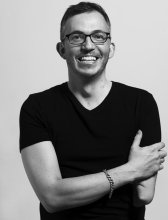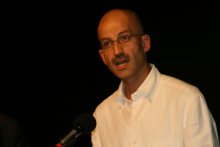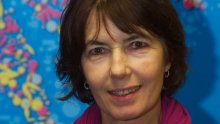In our media-saturated world, victims of wars and mass violations of human rights are often depicted as bodies rather than as individuals.
A Right to the Image
Synopsis
In our media-saturated world, victims of wars and mass violations of human rights are often depicted as bodies rather than as individuals. Representations of human suffering and injustice are not only aesthetic choices; they are also political and ethical choices. Thus comes the proposed concept of “a right to the image”—a complex, multilayered idea that is not associated with any single right, but rather a group of rights. By examining different bodies of film and photographic work, we explore the notion of a right to the image that protects the dignity of subjects, as well as the integrity of the journalists, filmmakers, photographers, and researchers who work in these situations. This programme will run 90 minutes.
This programme features a panel discussion with:
Giles Duley, filmmaker, journalist, photographer
Charif Kiwan, co-founder and spokesperson, Abounaddara Collective
Kim Longinotto, filmmaker


